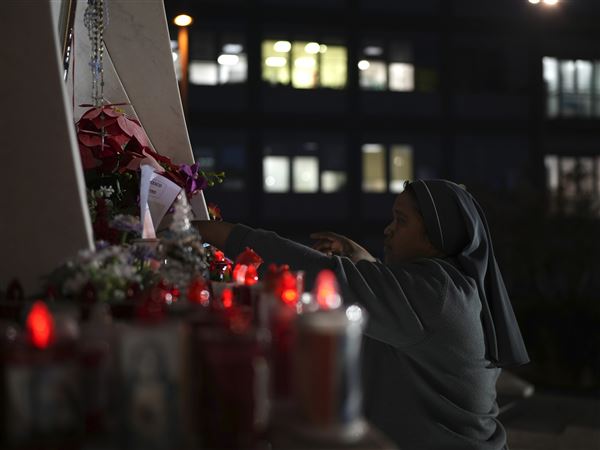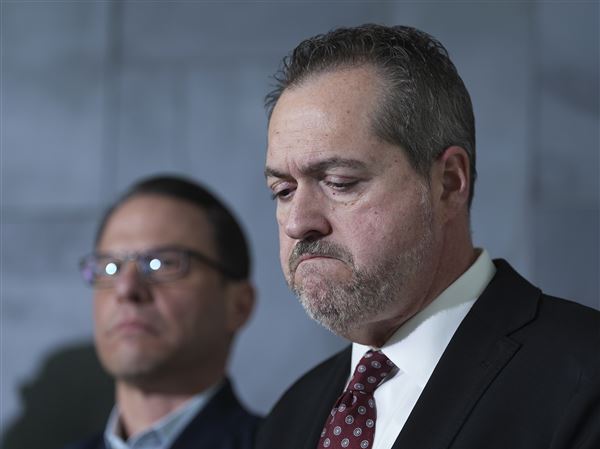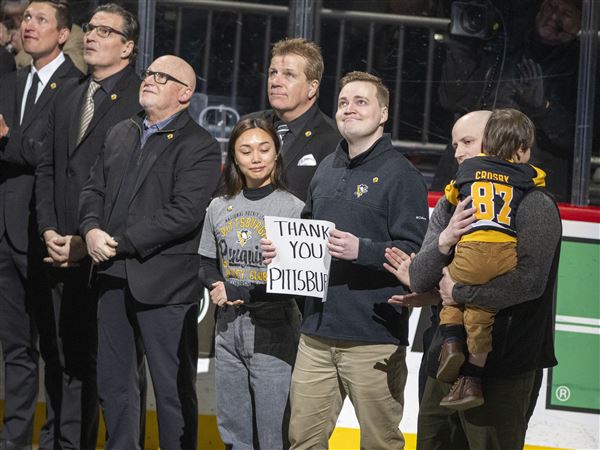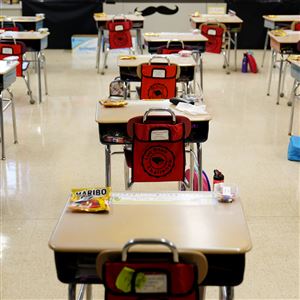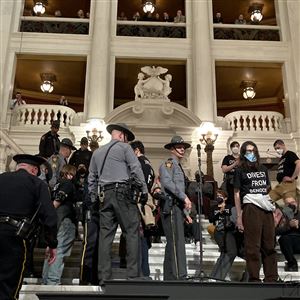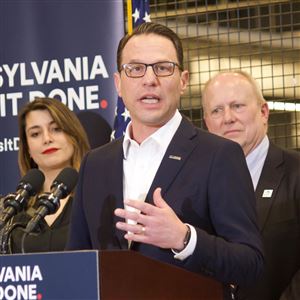HARRISBURG — The day after Gov. Josh Shapiro launched the 2024-25 state budget process with a 90-minute speech focused on his $48.3 billion spending proposal, Kim Ward and Jay Costa were mindful as ever that Pennsylvania is ruled by divided government.
Separate Wednesday interviews with both lawmakers — two of the most influential political leaders in Western Pennsylvania — underscored the question, “How divided is it?”
The answer will play out over coming months as lawmakers work to meet a June 30 budget deadline. Last year was the first in office for Mr. Shapiro, a Democrat, and political fighting made things messy. Money was held up in some categories — like libraries and community colleges — until well into December.
Mr. Costa, the Senate Democratic minority leader, on Tuesday called Mr. Shapiro’s new proposal “very solid” and a “thorough, bold plan.”
On Wednesday, he said last year’s process was a learning one for a Senate run by Republicans and a House and governor’s office run by Democrats. For years before 2023, Republicans controlled both chambers.
“It was a little bumpy but I think we have learned from that,” Mr. Costa said. “Particularly as it relates to what occurred in December, where we came together on a number of items.”
He said it is important to have “blended outcomes” where there is balance between what each side brings away from negotiations.
Ms. Ward, the Republican Senate president pro tempore from Westmoreland County, said Mr. Shapiro’s Tuesday remarks put things in a much different place than last year.
“At least, last year, the budget was a little more moderate. This year it is straight-on, full-fledged, spend, spend, spend. A much more liberal budget, even to the point where they are putting sanitary napkins in schools,” Ms. Ward said, referring to Mr. Shapiro’s proposal to make feminine hygiene products available, free of charge, in schools.
A momentous day last year was July 5, when Mr. Shapiro announced he would sign a spending bill but line-item veto one piece of it: a voucher-style school scholarship program that Senate Republicans said he had agreed to in negotiations.
Some Republicans said he had misled them at the bargaining table — an accusation he disputed.
Ms. Ward said Mr. Shapiro’s approach will have much to do with how well this year’s process goes.
“If he leads, which he did not do last year. He kind of took his ball and went home in July, and said, ‘Oh the House has to agree or we can’t do it,’” Ms. Ward said.
“We have to try to come together. We owe it to the people of Pennsylvania to try and come together,” she said. “But we are not going to just spend, spend, spend.”
An example of Shapiro proposals that could get shuttled back and forth across the bargaining table this year is Whole-Home Repairs.
First approved in 2022 using all federal money, the program allows income-qualified homeowners to get grants to carry out certain home repairs. The $125 million in federal money went to more than 60 counties statewide, and the program has been tremendously popular in Allegheny County.
Daniel Sullivan, housing stabilization program manager for Action Housing Inc. of Pittsburgh, told Democratic senators recently that continued funding is “absolutely essential.”
The program received 4,300 eligible applications and only had enough money to cover work for 200 of them.
Mr. Sullivan said many projects were roof replacements, foundation work or window replacements — the sort of issues which, if not addressed, might lead the owner to abandon the home. He said that would contribute to the region’s blight problem.
Mr. Shapiro has proposed putting $50 million of state money into the program. Mr. Costa applauded the idea, saying Whole-Home is a “safety net” that allows people to stay in their homes, stabilizing communities.
Ms. Ward sees the proposal as one among many whose fate will depend on how negotiations go. “I think that helping people is fine,” she said.
She shook her head at Mr. Shapiro’s statement that even if all his proposals are enacted, a state surplus projected to stand at $14 billion on June 30 will only be diminished to $11 billion the following year.
“We don’t know,” she said.
Ford Turner: fturner@post-gazette.com
First Published: February 7, 2024, 10:45 p.m.
Updated: February 8, 2024, 4:08 p.m.
